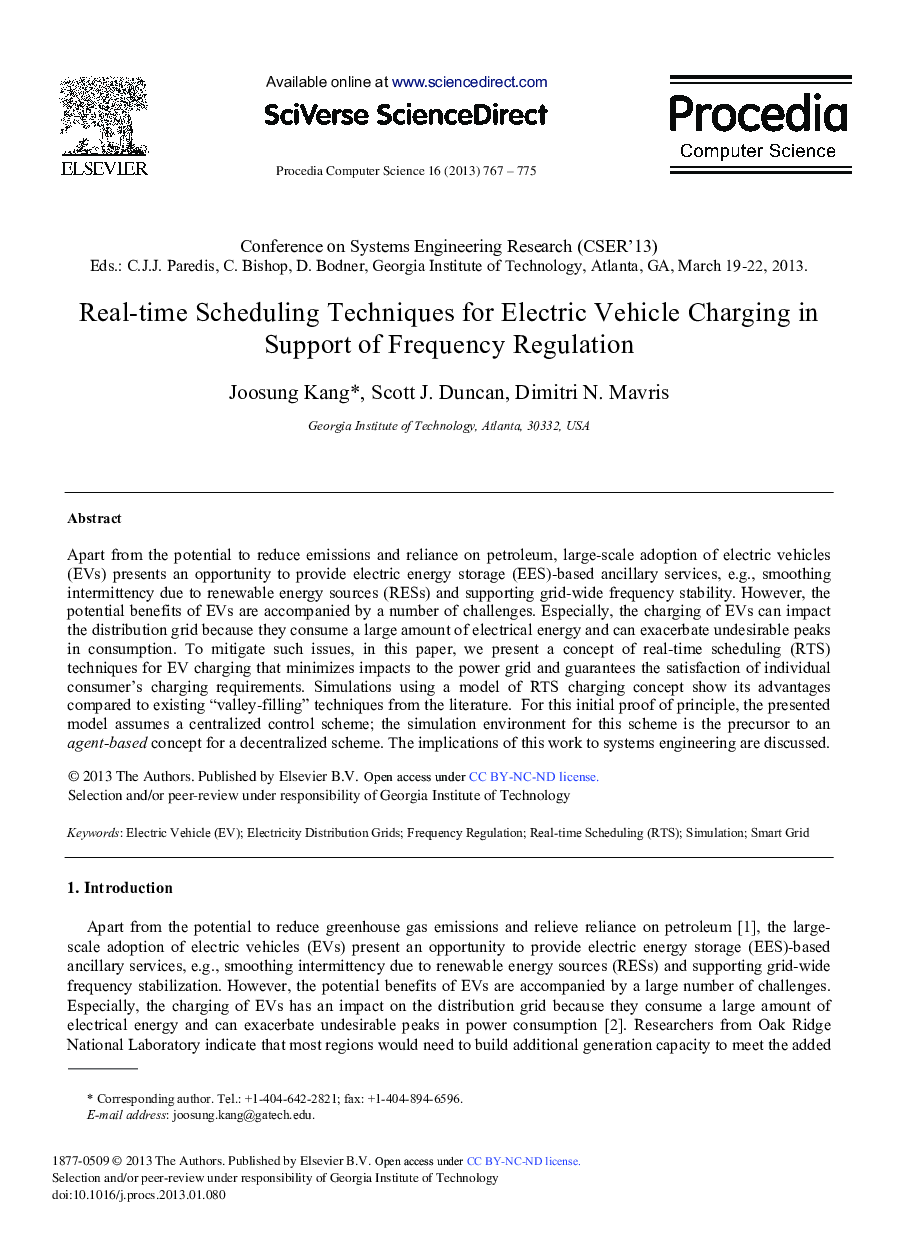| Article ID | Journal | Published Year | Pages | File Type |
|---|---|---|---|---|
| 486626 | Procedia Computer Science | 2013 | 9 Pages |
Apart from the potential to reduce emissions and reliance on petroleum, large-scale adoption of electric vehicles (EVs) presents an opportunity to provide electric energy storage (EES)-based ancillary services, e.g., smoothing intermittency due to renewable energy sources (RESs) and supporting grid-wide frequency stability. However, the potential benefits of EVs are accompanied by a number of challenges. Especially, the charging of EVs can impact the distribution grid because they consume a large amount of electrical energy and can exacerbate undesirable peaks in consumption. To mitigate such issues, in this paper, we present a concept of real-time scheduling (RTS) techniques for EV charging that minimizes impacts to the power grid and guarantees the satisfaction of individual consumer's charging requirements. Simulations using a model of RTS charging concept show its advantages compared to existing “valley-filling” techniques from the literature. For this initial proof of principle, the presented model assumes a centralized control scheme; the simulation environment for this scheme is the precursor to an agent-based concept for a decentralized scheme. The implications of this work to systems engineering are discussed.
